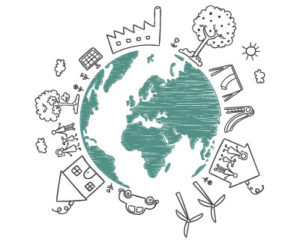Vincci Once again Vincci Hotels has increased its waste recycling by 40% this year
Firmly committed to its surrounding environment and with a clear focus on the circular economy, the hotel chain has once again reached its target of recycling 40% of its waste in most of its hotels. Recycled materials range from the most traditional such as paper and cardboard, glass, plastic or textiles, to more innovative ones such as glycerine soaps, wine corks and coffee capsules. In addition, Vincci Hotels has taken a further step focusing its efforts on reducing waste generation, with the implementation of initiatives such as the elimination of single-use plastics throughout the group.

Once again Vincci Hotels has increased its waste recycling by 40% this year true to its commitment to respect its surrounding environment. This initiative, together with others implemented by the company, demonstrate the hotel chain’s clear commitment to the circular economy, which aims to maintain the value of products, materials and resources in the economy for as long as possible, and to minimize the generation of waste. That is why, each year, the company sets a series of objectives in this area and both in 2017 and 2018 it set the target of recycling more than 40% of the total waste generated, a target it has achieved in most of its establishments in both years.
Since its foundation in 2001, Vincci Hotels has undertakecn a series of commitments regarding its social and environmental surroundings . It has implemented different courses of action included in its Corporate Social Responsibility Master Plan, which affects the entire company both in it hotels and headquarters and takes stock of the targets achieved so far while setting new challenges for the coming years. These actions include the {>5 recycling of waste that has been carried out since the beginning and to which, over time, new matherials have been incorporated. The waste recycled since the beginning includes paper and cardboard, glass, batteries, containers, organic material, etc. and in recent years other elements are being recycled such as oil, fats, luminaires (LEDs, low consumption and fluorescents), toners and medicines.
In many cases, recycling also has a double purpose, environmental and social, as in the example of our recycling of plastic bottle caps, the proceeds of which are given to the SEUR Foundation to help children in need; clothes which are donated to different foundations or whose materials are reused to make new clothes; wine corks which are used to make surfboards or furniture in collaboration with the Richpeoplethings organization; glycerine soaps, recycled together with the Dalma Foundation, which works towards the workplace integration of people at risk of exclusion; and coffee capsules, which are deposited in a different container for subsequent recycling of the aluminium component and whose coffee grounds are composted to fertilize fields.
Reduction of waste generation
The hotel chain has taken another step focusing its efforts on reducing waste generation with measures such as a review of its purchase criteria to give preference to bulk goods, the introduction of food dispensers and dispensers in bathrooms, etc.
One of the principal measures implemented in this regard is the elimination this year of all single-use plastic products within the chain. Both its 38 hotels in Spain, Portugal and Tunisia as well as its headquarters will be free of single-use plastic by the end of 2019, as part of its “Plastic Free”, plan that aims to eliminate all kinds of plastic in the company in the future. The group started in 2017 replacing plastic with biodegradable and reusable products. As a result, over these last three years Vincci Hotels has been replacing everyday plastic utensils such as bottles, amenities, straws, laundry bags, etc. with others made of sustainable materials.
Some of the plastic objects that have been replaced include crockery, cutlery and pool glasses with those made of bamboo or palm leaves, straws with those made of cardboard or edible materials; laundry bags with water-soluble bags, the packaging of amenities is now made of stone paper and a pilot project is underway to eliminate them and replace them with dispensers; food products as single-dose jams, for example, have been replaced with dishes prepared at the hotel itself and served in glass containers or dispensers, etc. In short, the Quality and Environment Department of Vincci Hotels has analysed each of the plastic containers used and searched for biodegradable materials to replace them.
The implementation of an Environmental Management System following the ISO 14001 international standard throughout its European portfolio has enabled he chain to catalogue all the environmental aspects generated by its activity and to promote environmental protection and the prevention of pollution.
All of this is included in the chain’s Corporate Social Responsibility Master Plan that links the mission and vision of Vincci Hotels, supported by three pillars: the social, environmental and health-related areas, prioritizing continuous improvement, resource optimization, consumption control, waste reduction and management, as well as respect and protection of the cultural and social environment in all the chain’s establishments, both hotels and headquarters. The company believes it is essential to integrate quality and environmental management in each of its hotels; to identify and comply with local, regional, state and European regulations in this area; prevent , as much as possible, pollution; and promote the saving of energy and natural resources, both at the chain level and individually at each hotel. That is why all processes are underlined by a firm environmental and social commitment which we have conveyed to both employees and suppliers.
Given its commitment, Vincci Hotels publishes an Annual Sustainability Report every year. The different practices carried out by the chain in these areas can be consulted on its corporate website Vincci Sustainable & Responsible Hotels.
